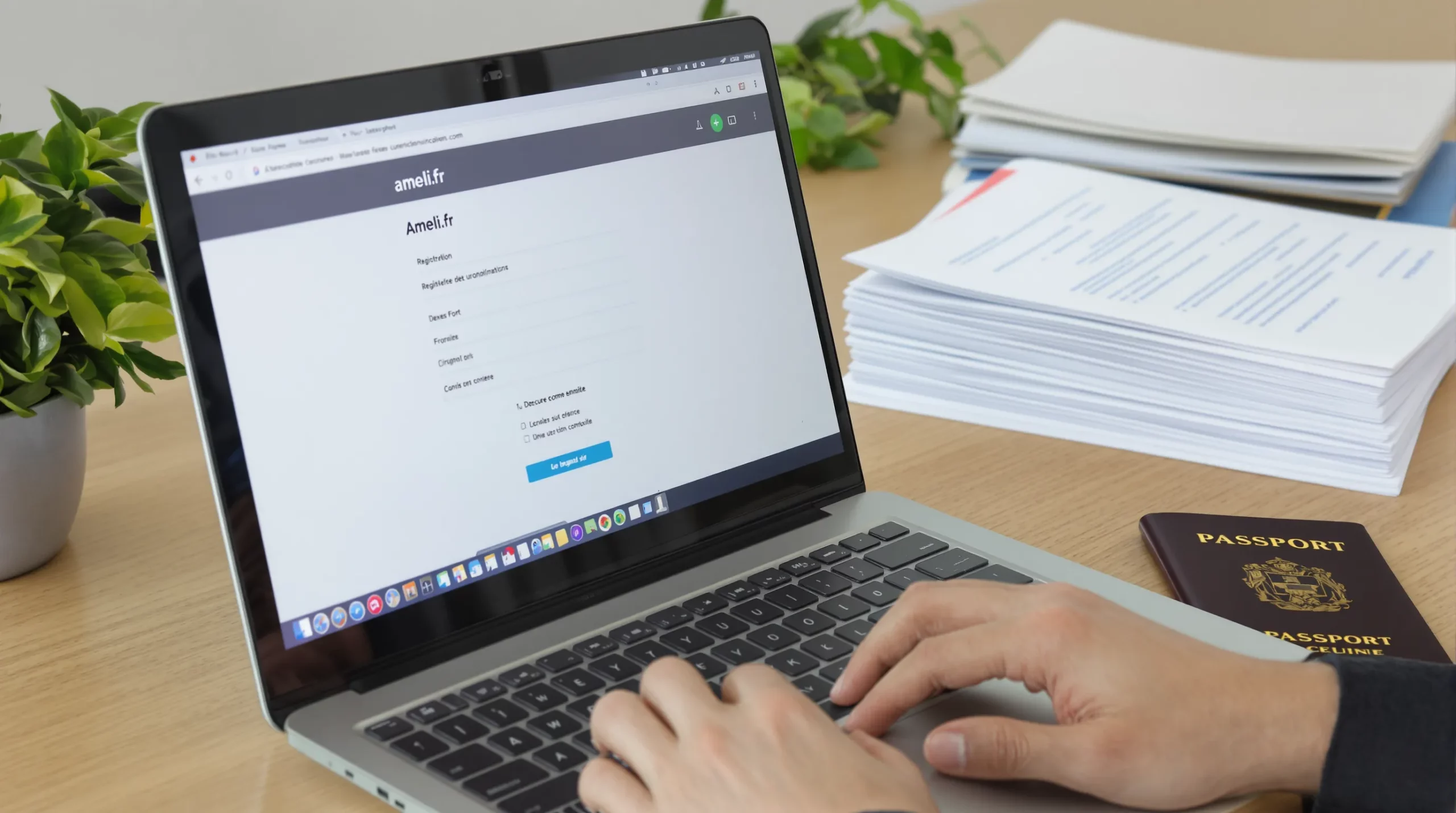Medical Coverage in France: Registering with CPAM as a New Visa Holder

Why registering with CPAM matters for new arrivals
Holding a French residence visa is the first step toward settling in the country, but full integration also requires access to the national health system. Registration with the Caisse Primaire d’Assurance Maladie (CPAM) unlocks reimbursement for doctor visits, hospital stays, and prescriptions, and it is compulsory if you plan to live in France longer than three months. In 2025, digital services have streamlined the process, yet first-time applicants still face unfamiliar forms and terminology. This guide explains, step by step, how visa holders can obtain a French social security number and a coveted Carte Vitale without unnecessary delays.

1. How the French health system is structured
- Assurance Maladie is the public insurer that reimburses most medical costs. Each département has a local branch called CPAM.
- PUMA (Protection Universelle Maladie) guarantees health coverage to anyone who has been a stable, legal resident in France for at least three continuous months.
- A complementary policy, the mutuelle, can be purchased separately to top-up reimbursements to 100%.
Newcomers often arrive with private insurance obtained for their visa application. This private plan remains mandatory until CPAM coverage begins, so avoid cancelling it prematurely.
2. Eligibility rules for non-EU visa holders
You qualify to register with CPAM if you meet all three conditions:
- Hold a valid long-stay visa or residence permit (student, employee, talent passport, family, etc.).
- Reside in France for at least 3 consecutive months. The 3-month rule does not apply to salaried workers, VIE interns, or posted workers, who are covered from day one of their employment contract.
- Intend to stay in France on a stable basis (not a tourist or seasonal visitor).
Special cases
- Students use the dedicated portal etudiant-etranger.ameli.fr and do not need to wait 3 months.
- British citizens fall under the post-Brexit Withdrawal Agreement if they hold the “Article 50” residence permit; they register like other non-EU residents.
- Undocumented migrants may be eligible for Aide Médicale de l’État (AME) after three months of physical presence. ImmiFrance can point you to associations that assist with AME files.
3. Documents you will need in 2025
Gathering a complete file is the number-one way to avoid processing delays. Double-check that all non-French documents are translated by a sworn translator.
- Form Cerfa n°736 “Demande d’ouverture des droits PUMA” (download on ameli.fr)
- Passport identity page + visa sticker or residence permit (both sides)
- Proof of address less than 3 months old (utility bill, rental contract, or attestation d’hébergement + host’s ID)
- Proof of stable residence: entry stamp plus utility bills/rent receipts covering 3 months; employees can substitute the work contract
- Birth certificate with certified translation
- Bank RIB in your name for reimbursement transfers
- Marriage certificate and spouse’s ID if applying for family members
- For children: birth certificates and school enrolment proof (if applicable)
Tip: scan the entire file into a single PDF per applicant; CPAM increasingly accepts emailed submissions after an initial postal filing.
4. Step-by-step registration procedure
- Wait (if necessary). Count three full months of residence unless you are exempt (employees, students, VIE etc.). Keep all rent or utility proofs.
- Complete the Cerfa 736. Use block letters, black ink, and the exact names appearing on your passport. Leave the social security number blank if you never had one.
- Attach supporting documents. Checklist above. For multi-page permits, copy both sides.
- Send your file by registered post with acknowledgement (lettre recommandée AR) to the CPAM of the département where you live.
- Track your file. You should receive an acknowledgement within 30 days containing a provisional 15-digit number (commencing with 7 or 8 for foreigners). If nothing arrives, call 36 46 with your postal receipt handy.
- Create your Ameli account when you have the provisional number. Most features, including reimbursement tracking, will already work.
- Receive your definitive number. After civil-status verification by INSEE, CPAM issues a permanent number beginning with 1 (male) or 2 (female). Processing in 2025 averages 4 to 6 months.
- Order the Carte Vitale. Log in to Ameli, upload an ID photo and a scan of your passport. The green card arrives by post within 2 to 3 weeks.

Adding dependents
Spouses and children under 16 can be affiliated on the main applicant’s file. Each adult partner needs their own Cerfa 736; children are listed in section 5 of the form.
5. After you are covered: how reimbursements work
- Standard GP visit: 26.50 €; CPAM reimburses 70% (18.55 €) directly to your bank account within 5 days. A mutuelle usually pays the remaining 30%.
- Pharmacy prescriptions: reimbursed between 15% and 100% depending on the medication’s classification.
- Hospital stay: CPAM covers 80% from day one; supplemental insurance or the patient pays the rest plus the fixed “forfait journalier” (20 € in 2025).
Always present your Carte Vitale to benefit from third-party payment (tiers payant) so you only pay the non-covered portion.
6. Common pitfalls and how to avoid them
- Missing translations. CPAM automatically suspends files without certified French translations of vital records.
- Address mismatch. If the proof of address is in a roommate’s name, add an attestation d’hébergement plus their ID copy.
- Multiple last names. Use the same order of surnames everywhere; the system is sensitive to discrepancies.
- Premature private-insurance cancellation. Wait for your first reimbursement from CPAM before cancelling the visa-insurance policy.
7. Keeping your rights up to date
- Renew your residence permit in time; CPAM receives automatic data feeds from préfectures but you must still upload the new card to Ameli.
- Report address changes within 15 days via your Ameli account.
- Switching jobs? Ask your new employer for the “Déclaration Préalable à l’Embauche” (DPAE) and update your professional situation online.
Frequently Asked Questions (FAQ)
Can I register with CPAM before completing three months in France?
Only if you fall under an exemption category: salaried employment contract, VIE, au pair with URSSAF registration, or student status via the foreign-student portal.
How long does it take to get the Carte Vitale in 2025?
From the day CPAM receives a complete file, average delay is 6 to 8 months for the permanent number, then 2 more weeks for the card itself. Keeping copies of all documents and responding fast to CPAM letters helps shorten the timeline.
What if CPAM loses my documents?
Send applications by registered mail, keep digital copies, and upload them again through your Ameli space if requested. Lost mail disputes are solved faster when you provide the AR receipt.
Is a mutuelle compulsory?
Not legally, but without one you pay the part not reimbursed by Assurance Maladie. For hospitalisation or dental work the remainder can be several hundred euros.
Does CPAM coverage stop if my residence permit expires?
Yes. Rights are suspended after expiry plus a short grace period. File your renewal early and upload the récépissé to Ameli to maintain continuity.
Ready for hassle-free registration?
Navigating French paperwork can drain time and energy that could be spent settling into your new job or studies. The immigration specialists at ImmiFrance handle CPAM filings, prefecture appointments, and residence-permit renewals daily. Book a free eligibility call and let us turn the health-care maze into a smooth, predictable process.
Start now at ImmiFrance – Administrative Procedure Help.
